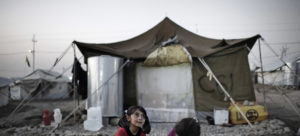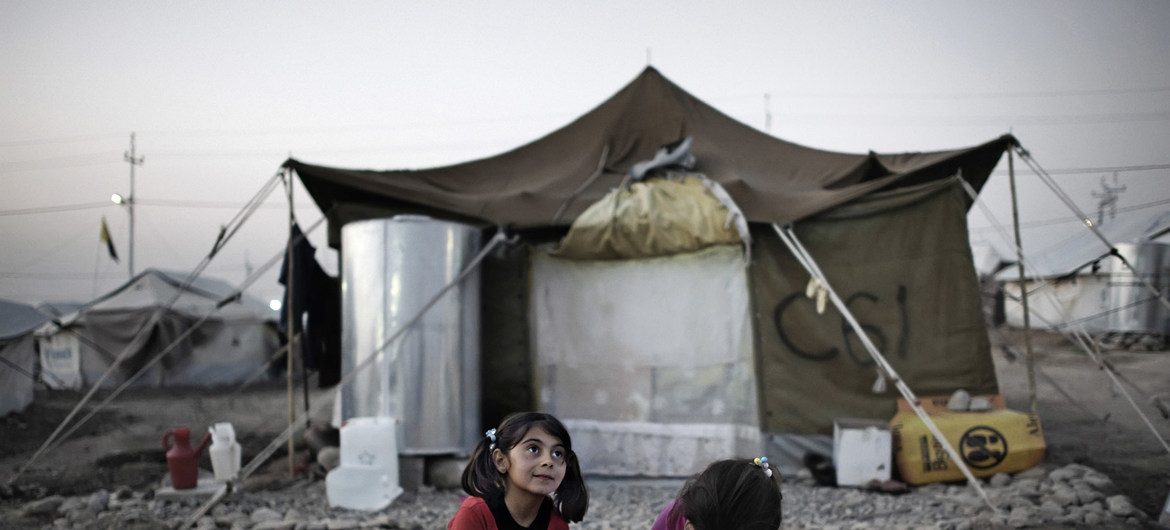 Some 5.6 million Syrians need help outside the war-torn country and one million of them are children born in exile, UN agencies and partners said on Tuesday, in an appeal for $5.5 billion to cover humanitarian needs for 2019.
Some 5.6 million Syrians need help outside the war-torn country and one million of them are children born in exile, UN agencies and partners said on Tuesday, in an appeal for $5.5 billion to cover humanitarian needs for 2019.
Since conflict erupted in Syria in 2011, host communities in neighboring countries have supported those who have fled, despite the significant impact on their own development, The UN Refugee Agency’s (UNHCR) Amin Awad, Regional Refugee Coordinator for Syria and Iraq, told journalists in Geneva.
“We are appealing this year for $5.5 billion, that is to support neighboring countries, but also to support operations assisting refugees in the areas of health, water, sanitation and food, education, psycho-social support, community services and so on and so forth.”
In total, 3.9 million people from host communities in Turkey, Lebanon, Jordan, Egypt and Iraq are to benefit from the appeal. “These countries have been living under significant strains and have been super generous to all of the refugees that have been there, but it’s also important for these countries to think not only about how they can support in the present, but also in the future,” said Senior Regional Manager for the UN Development Program (UNDP) Samuel Rizk.
Following the 2015 launch of the Regional Refugee and Resilience Plan (3RP), around $12 billion in aid has been distributed in the five main host countries, via more than 270 humanitarian and development partners.
Help is also required inside Syria, with up to 250,000 people expected to return there next year from outside. So far this year, around 28,000 have gone home, the UNHCR official said, noting that returnees are provided with winter shelter kits, household items and additional help from 100 community centers in operation inside Syria.
Insisting that all returns should be voluntary with people allowed to return “in safety and dignity”, the UNHCR official explained that the agency is working with the Government of Syria and providing basic services including health, education and housing. He said that a significant number of youngsters were also in need.
Noting that one million Syrian children were born in exile during the last eight years in the neighboring countries alone, he said a big number of children will be returning. Seventy to 80 per cent of Syrian refugees are living below the poverty line in their host communities or countries, he said.
It is critical that the international community continues to recognize the plight of Syrian refugees, Mr Awad insisted, noting that many families have resorted to early marriage and child labor, just to survive.
In 2019, the aid funding will be used to helping to boost protection for refugees and get more children into education.
In addition, basic services will be enhanced and there will be a focus on providing economic opportunities – especially for women – at a local and national level.
